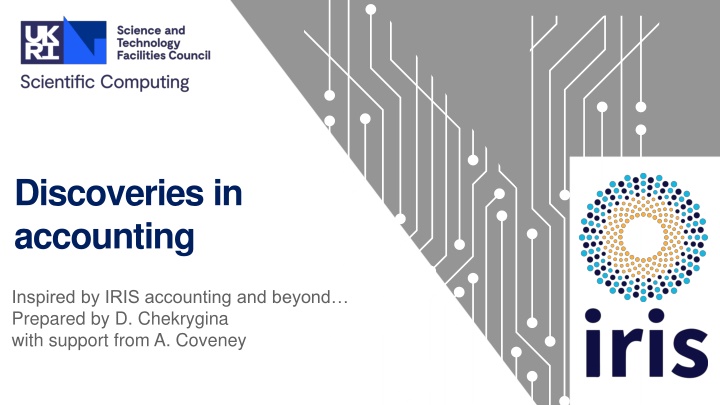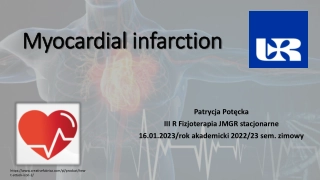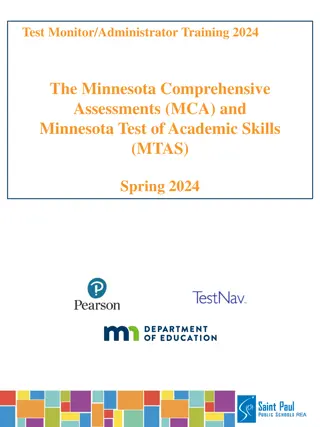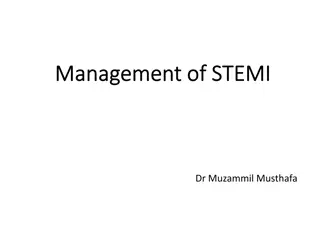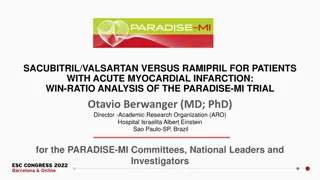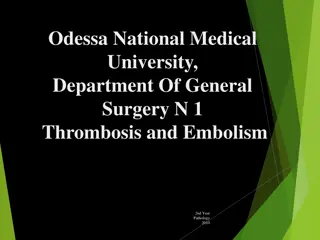Comprehensive Management of Malignant MCA Infarction: Clinical Questions and Guidelines
This content delves into the assessment and recommendations for managing malignant middle cerebral artery (MCA) infarction, covering topics from airway management to ethical considerations. Explore topics like glucose control, hyperventilation, neuroimaging, decompressive hemicraniectomy (DHC) considerations, and more in the context of ischemic stroke cases. Engage with critical questions on intervention timing, therapy efficacy, complications, and prognostication strategies for improved patient outcomes.
Download Presentation

Please find below an Image/Link to download the presentation.
The content on the website is provided AS IS for your information and personal use only. It may not be sold, licensed, or shared on other websites without obtaining consent from the author.If you encounter any issues during the download, it is possible that the publisher has removed the file from their server.
You are allowed to download the files provided on this website for personal or commercial use, subject to the condition that they are used lawfully. All files are the property of their respective owners.
The content on the website is provided AS IS for your information and personal use only. It may not be sold, licensed, or shared on other websites without obtaining consent from the author.
E N D
Presentation Transcript
Discoveries in accounting Inspired by IRIS accounting and beyond Prepared by D. Chekrygina with support from A. Coveney
Who we are and what we thought we have We have an experienced community with shared understanding We have set processes for procurement, planning, allocation and resource scrutiny, etc We have an accounting dashboard and decision-makers And many more other necessary for DRI things, of course!
Accounting report Q1 2023: how it was supposed to be Hardware accounting report IRIS accounting dashboard 15th July 1st July
IRIS accounting dashboard: users view Use values are close to IRIS capacity. 2024 2018
IRIS accounting dashboard: providers view Also looks reasonable for three main groups of IRIS providers.
What we actually see Physical cores (different cores, many generations, RAM varies from 2GB/core to 20) Virtual cores (hyperthreaded 2:1) Logical cores (hyperthreaded and not , so 1.5ish:1) Virtual and physical (some 2:1, other 1:1)
What are the consequences Consequences Users think these are physical cores Users ask IRIS for physical cores IRIS might buy in some cases TWICE as much hardware as needed Which means Wasted money Wasted electricity Wasted resources
Accounting report Q1 2023: how it actually went IRIS accounting dashboard Hardware accounting report GPU accounting Storage accounting
Accounting report Q1 2023: how it actually went IRIS accounting dashboard Hardware accounting report Storage accounting GPU accounting 20th September 1st July
We have information risks which are increased due to the remoteness of the information When the source of the information is removed from the decision maker, the information stands a greater chance of being misstated. the volume and complexity of the underlying data When volume and complexity of the information increase-can result in the information overload. Increases the chance that misstated information may exist undetected. the motive of the preparer Those who prepare information may have goals different from those of the decision maker. The information may be slanted in favour of a particular viewpoint or incentive.
What we discovered Accounting in finances has similar diseases to Accounting in IT. Errors of commission. Or an incorrect action error, can be when part of the record is incorrect, miscalculations, improperly reversed values, duplicates Data entry errors. Typos, misplaced decimals and etc. Errors of principle. When logic of calculation is incorrect, can be either because the wrong guidance was followed or followed incorrectly. Errors of omission. When one of the transactions overlooked and not recorded And they are all interconnected!
Data entry error IRIS didn t exist then
Error of commission/omission(both apply) Allocation does not correspond to the GridPP( in this fig) users only, but for all. While capacity is correct (as much as it could be). Commission: no functionality to do the calculation Omission: no relevant field yet introduced
Error of omission Data seems reasonable, but this is only part of the full signal. Not possible to know that this is not the full data without talking to the provider/user(in this case).
And this case: Error of principle! Physical cores (different cores, many generations, RAM varies from 2GB/core to 20) Virtual cores (hyperthreaded 2:1) Logical cores (hyperthreaded and not , so 1.5ish:1) Virtual and physical (some 2:1, other 1:1)
These were just some common cases, but these are not inclusive
Some more historic examples Confused terminology Tebibytes vs terabytes Raw disk vs Fillable vs Usable Occupied size vs Used size in tape storage Data mismatch of different monitoring system for the same hardware: what is considered real? S3 data records for broken writing process Data deletion residues and the unexpected Changed historic data
Possible prevention methods Important, but would not prevent many of our errors General guidance Watch for external dependencies (e.g. alerts on public endpoints) Make reliable monitoring system out of many unrealiable components: create dashboards with redundancies! Watch for anomalies! Great idea, but useless without regular auditing Another wonderful idea, but wouldn t have prevented errors above
We already follow recommendations for CPU Real-time reporting and analytics Error detection and compensating error identification Data centralisation Automated data entry and validation Integration with accounting standards Audit trails
But not for GPU(in preproduction) and storage Real-time reporting and analytics Error detection and compensating error identification Data centralisation Automated data entry and validation Integration with accounting standards Audit trails
What could be a solution? Improved automation of data collection and aggregation By supporting individual development projects IRIS can support provider efforts By starting the conversation in the community about standard units and benchmarking! It is crucial to reduce barriers for activities to validate their data. Then we can detect errors faster and better!
And this utopian idea might become a reality! Hardware accounting report IRIS accounting dashboard In two week time or less Start
What you can do as IRIS community See it. Say it. Sorted. Disclaimer: this slide was not agreed with the British Transport Police.
Special thanks to Adrian Coveney Rob Appleyard Andrew Sansum Rose Cooper Hope to leave you with the sense of doom and desire to audit your monitoring ASAP Science and Technology Facilities Council @STFC_matters Science and Technology Facilities Council
